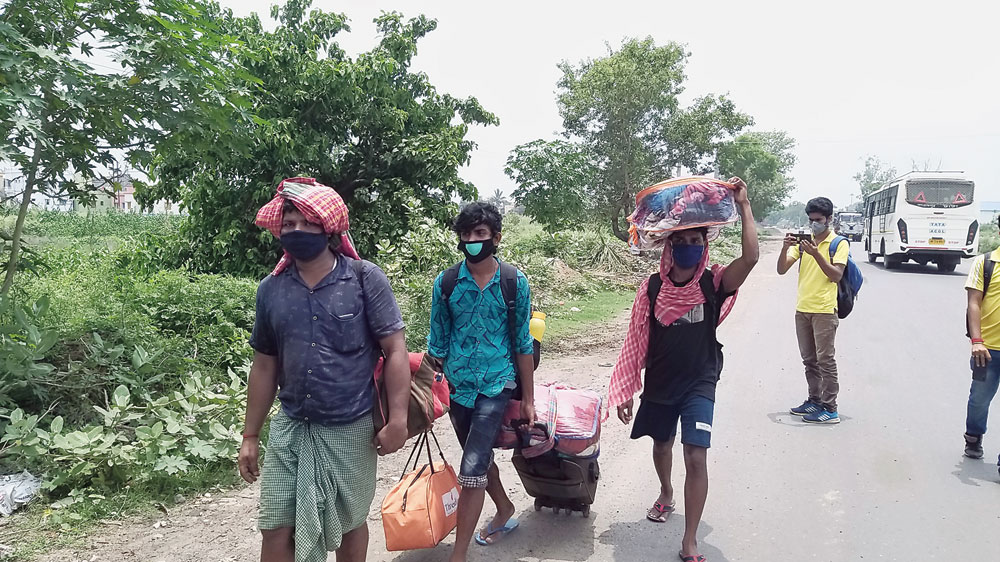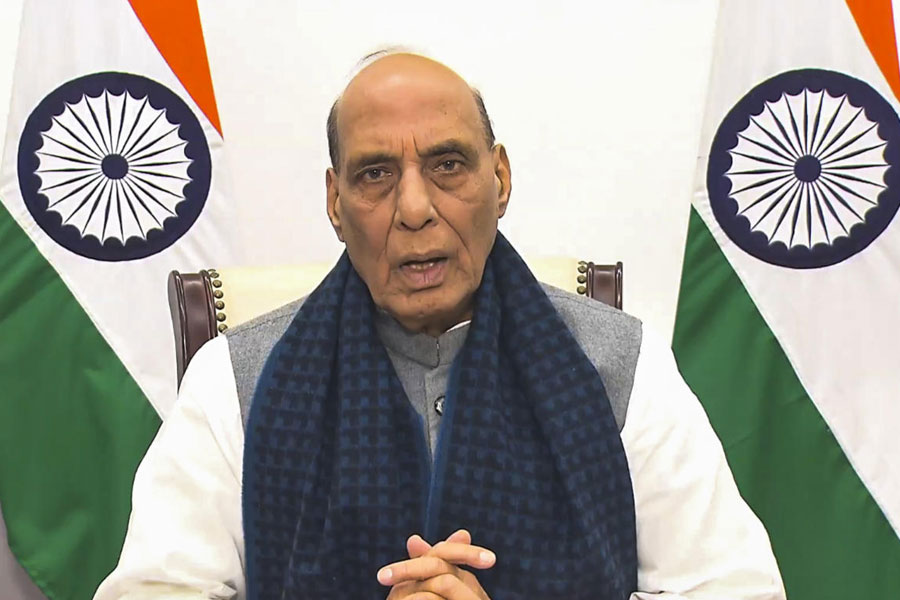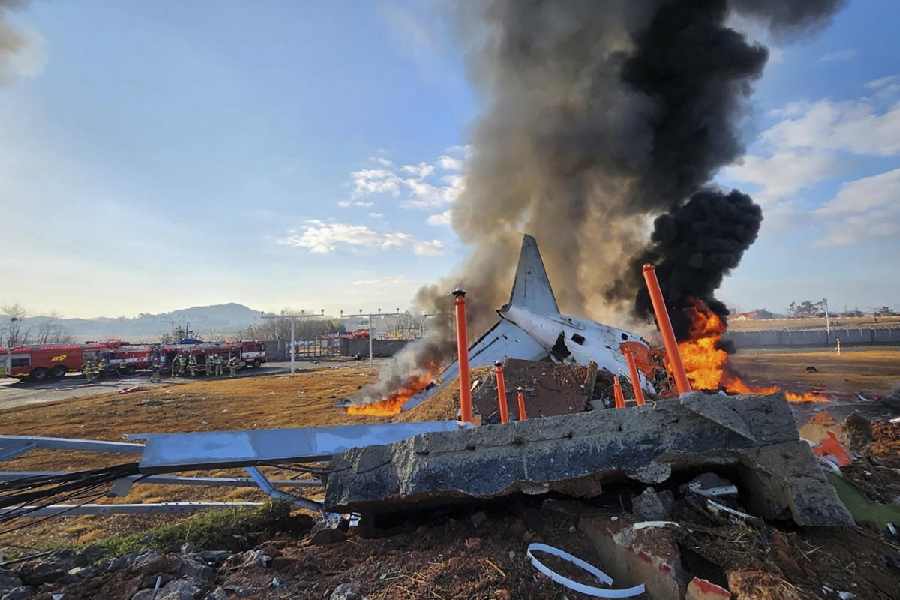The Bengal government has decided to “simplify” and “decentralise” Covid-19 testing protocol for migrant workers considering that swab test and institutional quarantine are not possible for thousands of returnees.
From now onwards, the state health department will collect swab samples from those with symptoms only. All asymptomatic persons would be sent to home quarantine.
Moreover, persons having mild symptoms could be encouraged to go in for home isolation depending on medical advice.
In case of persons with acute symptoms, required medical facilities would be arranged at hospitals.
“The health department has prepared the protocol in a bid to avoid congestion at entry points and quarantine centres. We must acknowledge that the huge influx of migrants is an issue for the state in terms of pressure on the healthcare system,” home secretary Alapan Bandopadhyay said at Nabanna on Tuesday.
So far, 19 trains have entered Bengal with migrants and 206 more would start coming from Wednesday.
“Bengal did not receive trains with migrant workers in the past one week because of Cyclone Amphan. But now, 15 trains would be coming every day on an average in the next two days. As the state administration was busy dealing with relief and restoration works in the cyclone-hit areas, it is not possible to test each and every returnee,” said a health department official.
So far, the state government was conducting swab tests of all the returnees coming in from states like Maharashtra, Delhi, Tamil Nadu, Madhya Pradesh and Gujarat where the disease has spread rapidly.
“That is why the number of positive cases has jumped in the state over the past few years. More than 30 cases were found positive in Malda and nine Covid-19 patients were detected in Birbhum. Both the districts were having lower number of cases and all the positive persons were from those states where the disease has spread deep,” said a senior government.
With the Bengal government deciding to simplify the protocol, a section of the health department officials consider it to be dangerous.
“Sending all asymptomatic persons and those having mild symptoms to home quarantine could be dangerous in a state where population density is so high. Moreover, most of the migrant workers don’t have enough space at their homes to follow the home isolation norms strictly,” said a senior health department official.











